尊敬的用户您好,这是来自FT中文网的温馨提示:如您对更多FT中文网的内容感兴趣,请在苹果应用商店或谷歌应用市场搜索“FT中文网”,下载FT中文网的官方应用。
Hundreds of defence and aerospace executives will this week descend on an airfield in southern England along with ministers, generals, air marshals and hangers-on, to attend the industry’s version of the Glastonbury music festival.
本周,数百名国防和航空航天高管将与大臣、将军、空军元帅和随从一道,降落在英格兰南部的一个机场,参加所谓“航空业的格拉斯顿伯里音乐节”。
This year, they will meet with a renewed sense of purpose. Until it was interrupted by the Covid-19 pandemic, the Farnborough International Airshow has been a regular event for more than seven decades. But for the first time in many years, the industry is relishing the prospect of a flood of money coming its way.
今年,他们将带着新的使命感会面。70多年来,范堡罗国际航展一直是一项常规活动,直到因新冠疫情中断。但多年来,这是该行业第一次享受着大量资金涌入的前景。
The war in Ukraine has prompted European governments to reverse the course of years of shrinking defence spending. Now, they want to do more to confront a newly aggressive Russia — and the companies at Farnborough hope to benefit.
乌克兰战争促使欧洲各国政府扭转了多年来国防开支不断缩减的趋势。现在,他们想做更多的事情来对抗新近变得咄咄逼人的俄罗斯——参加范堡罗航展的公司希望从中受益。
The war has galvanised efforts to make good on vague or failed ideas to bolster Europe’s status as a cohesive global military power. There are proposals for greater collaboration on military programmes and the streamlining of weapons manufacturing. Even Germany, long regarded as the big political stumbling block to greater investment, has abandoned decades of aversion to military engagement. It will boost spending and support more joint European projects.
这场战争激发了人们的努力,以兑现模糊或失败的想法,加强欧洲作为一个有凝聚力的全球军事力量的地位。有人提议在军事项目上加强合作,并精简武器制造。甚至连长期以来被视为加大投资的主要政治绊脚石的德国,也放弃了几十年来对军事参与的厌恶。它将增加开支并支持更多的欧洲联合项目。
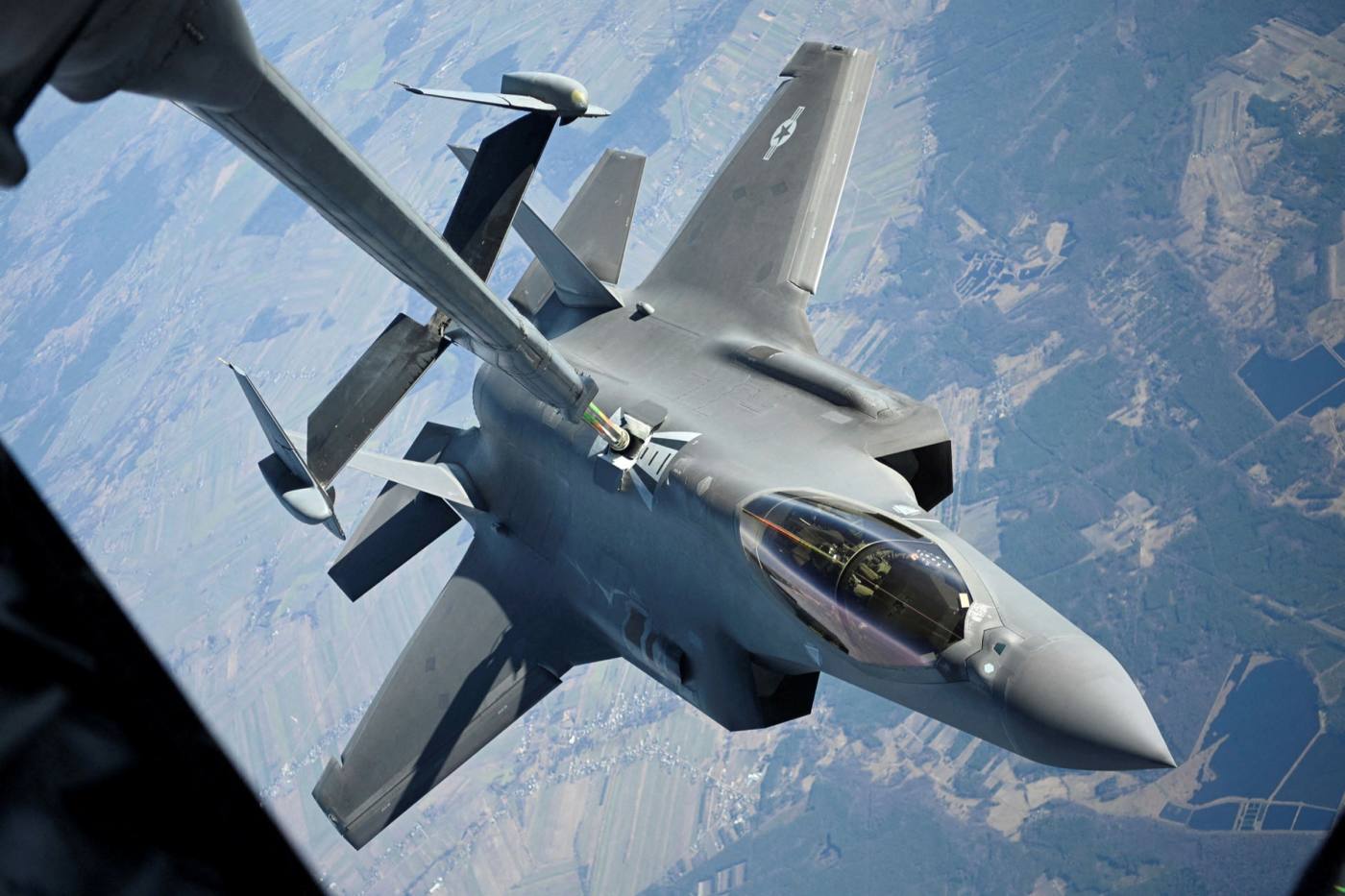

Still, it remains unclear whether the rush of new policy announcements will become a reality. Kajsa Ollongren, the Dutch minister of defence, admits similar pledges have been made before, only to fail. This time, however, she believes the reality of combat in Europe will help to force the issue. “In the past . . . people have been saying this in the context of [defence] budget cuts. And now we are saying it in the context of budget increases,” she says. “That’s a big engine for us to use.”
不过,目前还不清楚匆忙宣布的新政策是否会成为现实。荷兰国防部长卡伊萨•奥朗格伦(Kajsa Ollongren)承认,以前也曾做出过类似的承诺,但都以失败告终。然而,这一次,她相信欧洲的战争现实将有助于推动这一问题。“过去……人们是在(国防)预算削减的背景下这样说的。现在我们是在预算增加的情况下说这句话的。这对我们来说是一个很大的引擎。”
Europe’s plans may yet be hampered by some harsh realities. A portion of the recently announced budget increases will have to be spent on boosting the salaries of armed forces and replenishing stockpiles of weapons that have been depleted in the effort to help Ukraine, before new hardware can be considered.
欧洲的计划可能还受到一些严酷现实的阻碍。最近宣布的预算增长的一部分必须用于提高武装部队的工资,补充为帮助乌克兰而消耗掉的武器储备,然后才能考虑新的硬件。
Then there is the ever-present siren call of US equipment. Germany’s first big purchase after announcing it would launch a €100bn military modernisation fund was the American-made F-35 fighter jet, capable of carrying nuclear weapons. Some European industry executives worry that a large part of the extra money will not be spent at home.
此外,美国装备一直占据主导地位。在宣布将启动1000亿欧元军事现代化基金后,德国的第一笔大宗采购是能够携带核武器的美制F-35战斗机。一些欧洲行业高管担心,大部分增加的资金不会花在国内。
“I see an inherent risk that we focus too much on satisfying short-term demands by predominantly buying non-European off-the-shelf equipment,” says Michael Schoellhorn, chief executive of Airbus Defence and Space.
空客防务航天公司首席执行官迈克尔•舍尔霍恩(Michael Schoellhorn)表示:“我看到了一种内在风险,即我们过于专注于满足短期需求,主要购买非欧洲的现成设备。”
To do so, he warns, would be to undermine Europe’s “long-term technological excellence”, which could create “additional dependencies” in the future and potentially “result in a weakening of its defence [industry] and thereby be detrimental for European integration as a whole”.
他警告称,这样做将损害欧洲的“长期技术优势”,这可能在未来造成“额外依赖”,并可能“导致其国防(工业)削弱,从而不利于欧洲的整体一体化”。
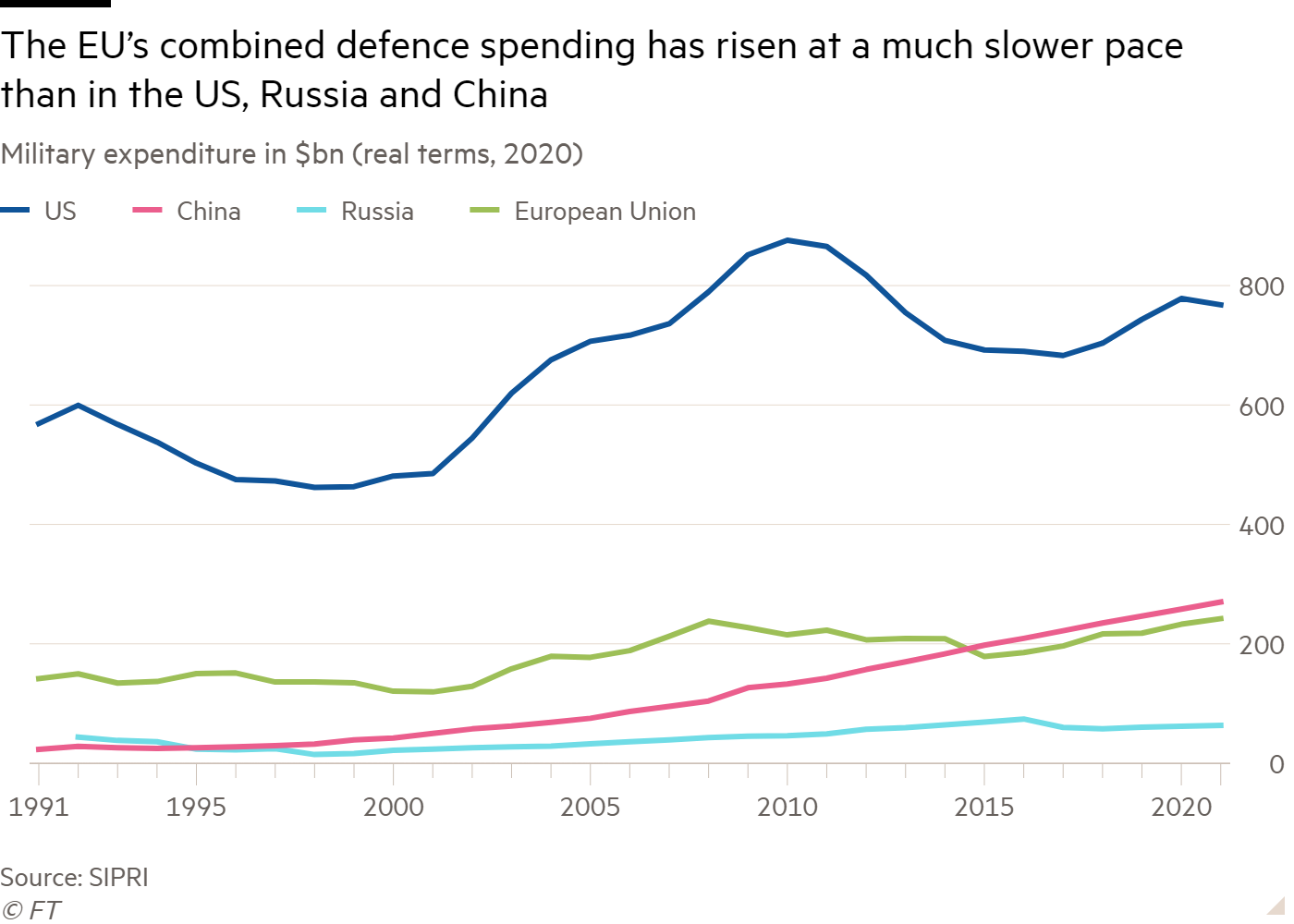
“We need to spend better and to spend more,” says Alessandro Profumo, president of ASD, the European industry’s trade association, and chief executive of Italy’s defence champion, Leonardo. To achieve that, he adds, there needs to be closer co-ordination at EU level on procurement: “We must have this integration process. It won’t be fast, but it has to happen.”
欧洲工业贸易协会ASD主席亚历山德罗•普罗富莫(Alessandro Profumo)说:“我们需要花得更好,花得更多。”普罗富莫是意大利国防冠军企业莱昂纳多(Leonardo)的首席执行官。他补充称,要实现这一目标,欧盟层面需要在采购方面加强协调:“我们必须有这样的一体化进程。这不会很快,但它必须发生。”
Replenish, replace, rebuild
补充、更换、重建
Inside a boxy grey building on an industrial estate in east Belfast in Northern Ireland, engineers are busy working on a weapon that has become one of the symbols of Ukraine’s pugnacious resistance to the Russian advance: a shoulder-mounted rocket launcher called the Next Generation Light Anti-tank Weapon, or NLAW.
在北爱尔兰贝尔法斯特东部一个工业区的一栋四四方方的灰色建筑里,工程师们正忙着研制一种武器:一种肩扛式火箭筒,名为“下一代轻型反坦克武器”(NLAW),它已成为乌克兰对抗俄罗斯进攻的象征之一。
Designed by Sweden’s defence champion, Saab, and assembled by the UK subsidiary of French group Thales, the NLAW has been shipped in its thousands to the Ukrainian frontline. Its success is one of the most visible examples of how the war could boost the European defence industry, but so far all the NLAWs sent to Ukraine by the UK have come from government stockpiles, rather than new orders.
NLAW由瑞典国防巨头萨博(Saab)设计,法国泰雷兹集团(Thales)的英国子公司组装,已有数千架NLAW运往乌克兰前线。它的成功是这场战争如何促进欧洲国防工业的最明显例子之一,但迄今为止,英国运往乌克兰的所有NLAW都来自政府库存,而不是新订单。
Since Russia’s full-blown invasion of Ukraine began in February, EU member states have announced defence spending increases worth about €200bn. But officials point out that the rise follows years of cuts and underspending. Between 1999 and 2021, the bloc’s combined spending on defence rose just 20 per cent, compared with 66 per cent by the US, 292 per cent by Russia and 592 per cent by China.
自今年2月俄罗斯全面入侵乌克兰以来,欧盟成员国已宣布增加约2000亿欧元的国防开支。但官员们指出,这一增长是多年来削减开支和支出不足的结果。在1999年至2021年期间,欧盟的国防支出总额仅增长了20%,相比之下,美国增长了66%,俄罗斯增长了292%,中国增长了592%。
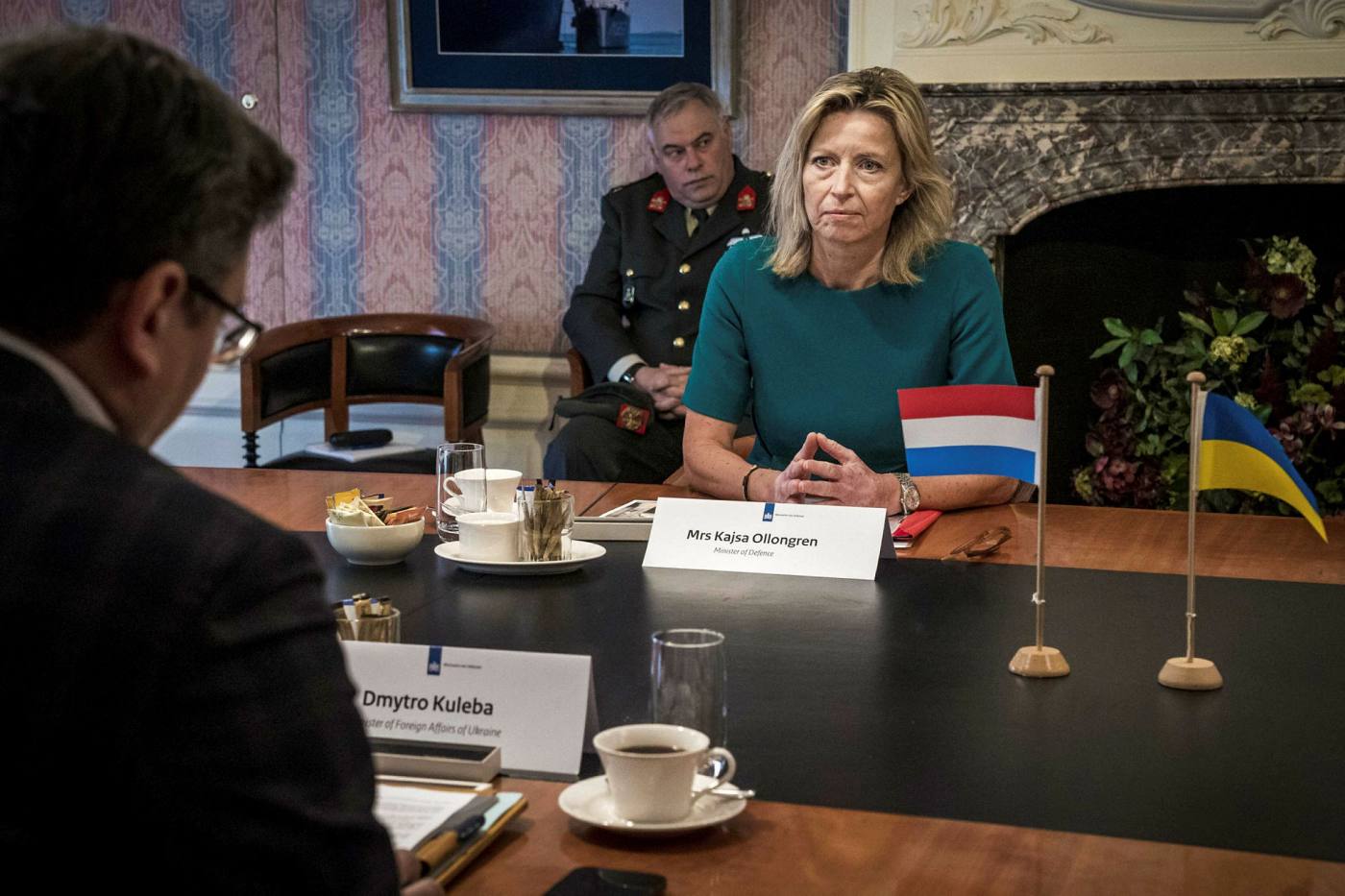

The war has also exposed Europe’s general lack of preparedness as countries scrambled to find hundreds of tanks, multiple rocket launch systems and artillery from national stockpiles to help deter the Russian advance. Those stockpiles are now running low.
这场战争还暴露出欧洲普遍缺乏准备,各国争相从国家储备中寻找数百辆坦克、多管火箭发射系统和火炮,以帮助遏制俄罗斯的推进。这些储备现在正在减少。
The bloc’s industrial challenge, according to Bastian Giegerich, director of defence and military analysis at the International Institute for Strategic Studies, is threefold: to replenish stockpiles run down over the past two decades; replace obsolete Cold War-era equipment that is being flushed out by the war in Ukraine; and rebuild and innovate for new capabilities.
国际战略研究所(International Institute for Strategic Studies)国防与军事分析主任巴斯蒂安•吉格里希(Bastian Giegerich)表示,欧盟在工业方面面临三重挑战:补充过去20年耗尽的库存;更换因乌克兰战争而被淘汰的冷战时期的陈旧设备;重建和创新以获得新的能力。
“The industrial challenge will be to do the replenish, the replace and the rebuild all at the same time,” he says. “I think that makes it quite challenging.”
他表示:“工业界面临的挑战将是同时进行补充、更换和重建工作。我认为这让它变得非常具有挑战性。”
There is an added political challenge: defence has in the past been regarded as the sovereign preserve of individual member states, not to be lightly surrendered to Brussels. The EU has been trying to develop its capacity for independent military action and strategic autonomy since the launch of its common security and defence policy in the late 1990s. But progress has been slow.
另外还有一个政治挑战:过去,防务一直被视为单个成员国的主权领地,不能轻易交给布鲁塞尔。欧盟自上世纪90年代末推出共同安全和防务政策以来,一直在努力发展自主军事行动和战略自主能力。但进展一直很缓慢。
The bloc’s defence industry is still a mix of large international prime contractors and nationally-focused companies, as well as hundreds of small and medium-sized businesses. There is greater fragmentation in the land and naval defence sectors compared with aerospace, where there have been more attempts at multinational co-operation, driven in part by high R&D and acquisition costs.
欧盟的国防工业仍由大型国际主承包商、以本国为重点的公司,以及数百家中小企业组成。与航空航天业相比,陆军和海军防务部门更加分散,而航空航天业则有更多跨国合作的尝试,部分原因是研发和采购成本高。
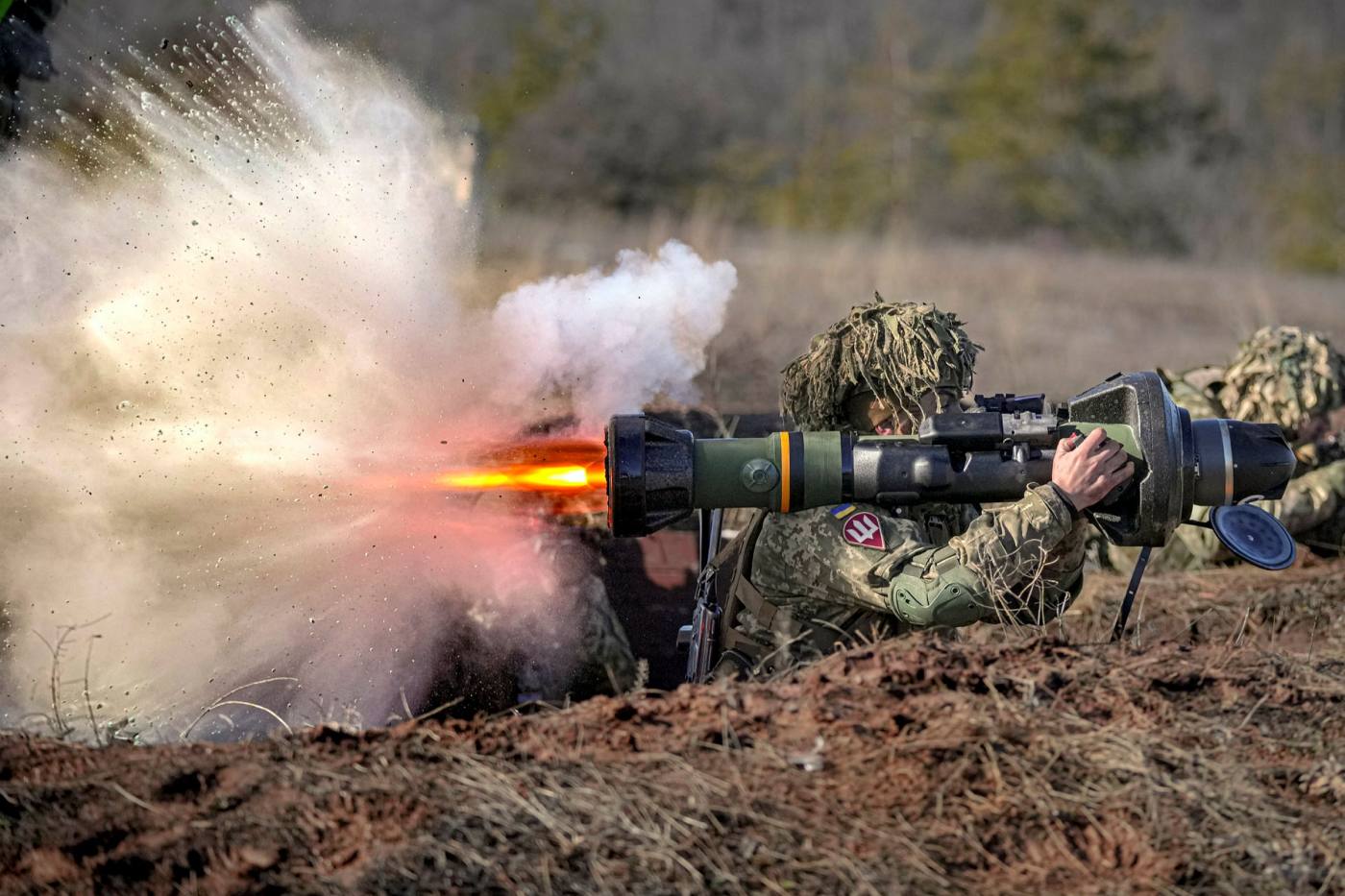

But even in aerospace the record is patchy, says Douglas Barrie, senior fellow for military aerospace at IISS, and “the successes have often courted failure”. He notes, for example, that even the successful Tornado and Eurofighter pan-European fighter programmes at “various points threatened to unravel”.
但即便是在航空航天领域,这一记录也参差不齐,IISS军事航空航天高级研究员道格拉斯•巴里(Douglas Barrie)表示,“成功往往伴随着失败”。例如,他指出,即使是成功的“龙卷风”(Tornado)和“欧洲战斗机”(Eurofighter)泛欧洲战斗机项目,在“各个方面都有解体的危险”。
European nations are currently pursuing two separate next-generation combat aircraft projects which target similar requirements: Tempest, led by the UK with Sweden and Italy, and the Future Combat Air System, involving France, Germany and Spain.
欧洲国家目前正在追求两个独立的下一代战斗机项目,以满足类似的需求:由英国与瑞典和意大利领导的“暴风雨”(Tempest),以及由法国、德国和西班牙参与的“未来作战空中系统”。
The poor record on co-operation is borne out by spending. In 2020, just 11 per cent of EU defence budgets were spent on collaborative projects — well below the 35 per cent target set by Brussels’ own European Defence Agency. The picture is the same in research and technology spending: in 2020 just 6 per cent was spent in collaboration with other member states, the lowest level since data collection began in 2005 — and well short of their 20 per cent target.
在合作方面的糟糕记录在开支上得到了证实。2020年,只有11%的欧盟国防预算用于合作项目,远低于布鲁塞尔自己的欧洲防卫局设定的35%的目标。研究和技术支出方面的情况也是如此:2020年,与其他成员国合作的支出仅占6%,这是自2005年开始收集数据以来的最低水平,远低于它们20%的目标。
Between them, the bloc’s militaries operated 17 different main battle tanks compared to just one for the US, according to 2017 data published by the European Commission. The EU data, however, included variants and Cold War-era models, as well as the UK’s Challenger system. There were 29 different naval frigates or destroyers, compared with just four different types in the US.
欧盟委员会(European Commission) 2017年发布的数据显示,欧盟军队使用了17种不同的主战坦克,而美国只有一种。然而,欧盟的数据包括各种型号和冷战时期的模型,以及英国的挑战者系统。有29种不同的海军护卫舰或驱逐舰,而美国只有四种不同类型。
“Of course we are going to do more procurement. But we want to do it jointly and think we should really focus on co-operation, co-ordination, standardisation,” says Ollongren.
奥朗格伦表示:“我们当然会进行更多的采购。但我们希望联合起来,我们认为,我们真的应该把重点放在合作、协调和标准化上。”
‘The orders will come’
“订单会来的”
In March, the European Council endorsed the EU Strategic Compass on defence, which proposes creating a rapid deployment force in Europe as well as increasing funding. The same month, in Versailles, European leaders called for the commission to propose measures to strengthen Europe’s defence industrial base.
今年3月,欧洲理事会(European Council)批准了《欧盟防务战略指南》(European Strategic Compass),该指南建议在欧洲建立一支快速部署部队,并增加资金。同月,在凡尔赛宫,欧洲领导人呼吁欧盟委员会提出措施,以加强欧洲的国防工业基础。
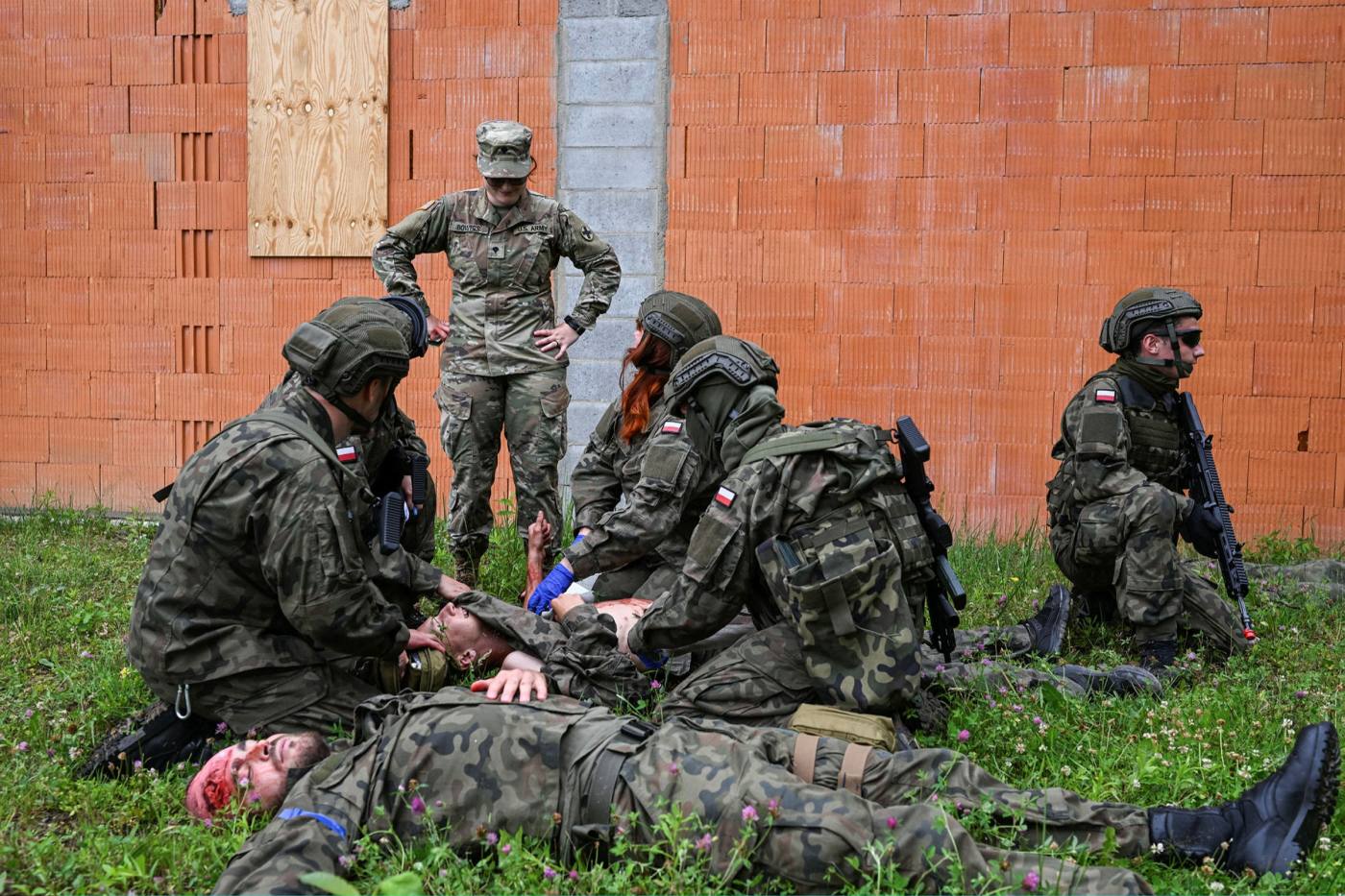

Under those plans, the EDA, which was set up in 2004 but has had a limited impact on national strategy so far, has been tasked with a series of new initiatives. These include more money for the European Defence Fund and the creation of a “procurement task force” to focus on short-term needs.
根据这些计划,2004年成立但迄今对国家战略影响有限的EDA被赋予了一系列新举措的任务。其中包括为欧洲防务基金(European Defence Fund)提供更多资金,以及创建一个“采购工作组”,以关注短期需求。
In the medium-term, priorities include the modernisation of Europe’s air defences and expanding drone, cyber and space capabilities. Another target is the development of a new battle tank, the MGCS tanks project, to replace Germany’s Leopard and France’s Leclerc. Waiving value added tax on defence equipment produced in Europe has also been suggested.
中期而言,重点包括欧洲防空系统的现代化,以及扩大无人机、网络和太空能力。另一个目标是开发一种新的作战坦克,即MGCS坦克项目,以取代德国的豹式坦克和法国的勒克莱尔。也有人建议免除在欧洲生产的国防设备的增值税。
There is now a “huge opportunity to use this big increase in defence spending to overhaul the EU’s defence capabilities — and for the first time do it in a joined up way, where countries stop this silly inefficient thing of ignoring the benefits of joined-up purchases”, says one senior EU official.
欧盟一名高级官员表示,现在“有一个巨大的机会,可以利用国防开支的大幅增加来彻底改革欧盟的国防能力——而且这是首次以联合方式来实现这一目标,各国将不再忽视联合采购的好处,[忽视联合采购是一种]愚蠢而低效的做法”。
Industry executives have welcomed the plans as evidence of a strategic shift. “The impact on . . . defence infrastructure is already more profound and global than many people realise,” says Charles Woodburn, CEO of BAE Systems. Jan Pie, the secretary-general of ASD, shares that hope: “The institutions have acted quickly and now it is up to the member states whether these ideas will fly or not.”
业内高管对这些计划表示欢迎,认为这是战略转变的证据。“对......国防基础设施的影响已经比许多人意识到的要深远和全球化。”BAE系统公司首席执行官查尔斯•伍德伯恩(Charles Woodburn)表示。ASD秘书长简•派(Jan Pie)也抱有同样的希望:“各机构已经迅速采取了行动,现在就看成员国的想法能否成功了。”
Leonardo’s Profumo cites the multibillion-euro project to deliver the bloc’s first unmanned drones in 2029 as an example of the kind of pan-European programme that will accelerate co-operation. “Eurodrone is taking off. I am sure that others will be there. Thanks to these [projects], the integration process will move forward,” he says.
莱昂纳多的普罗富莫以在2029年交付欧盟首批无人机的数十亿欧元项目为例,说明了这类泛欧洲项目将加速合作。“欧洲无人机正在起飞。我相信其他人也会来的。多亏了这些(项目),整合过程将向前推进,”他表示。
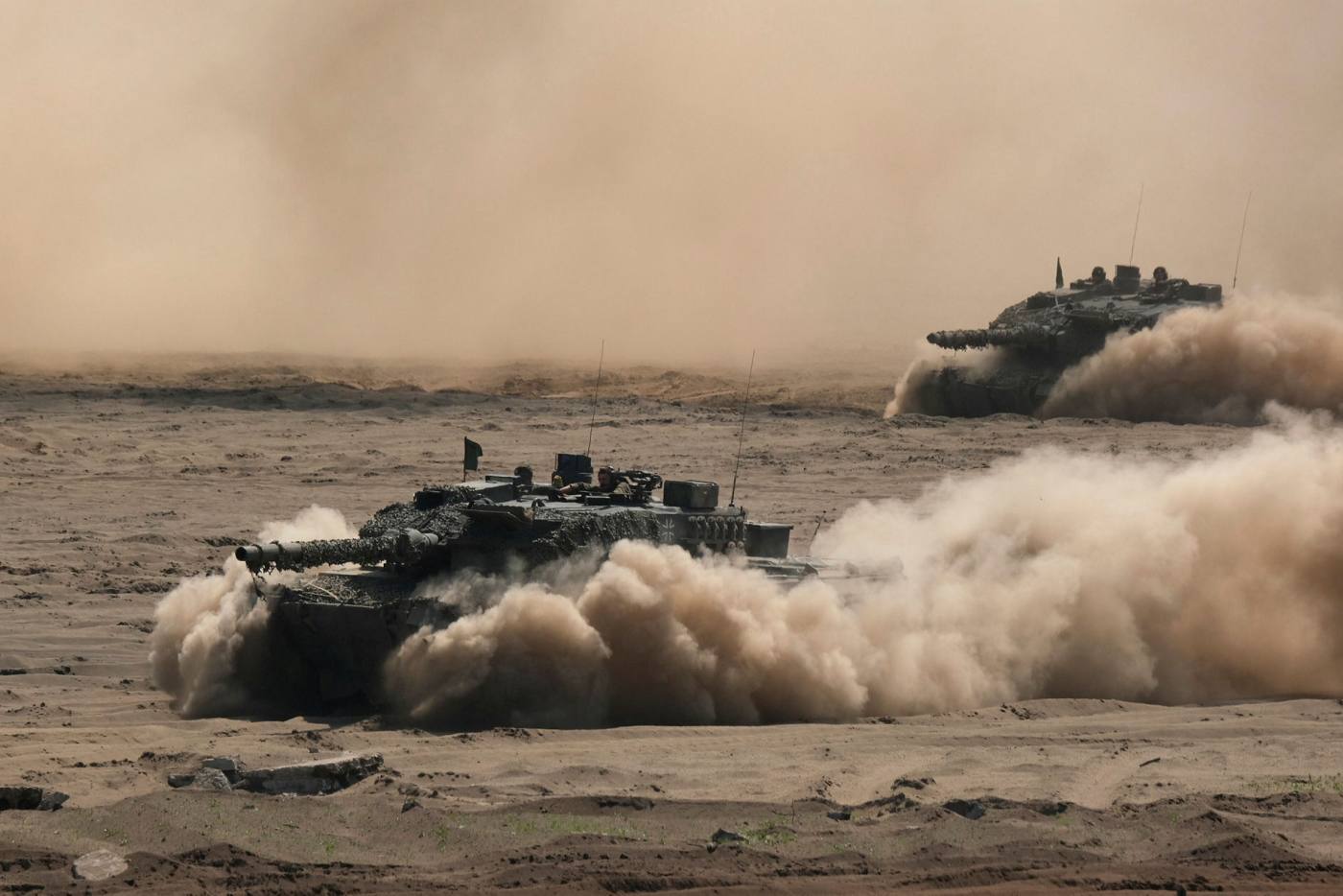

But Micael Johansson, chief executive of Saab, which produces Gripen fighter jets as well as multiple weapons systems and submarines, warned that the “tools or forums” to deliver on the commission’s plans still need to be set up. “It is a complicated process,” he adds, and it will take time before such initiatives lead to actual contracts for industry.
但生产“鹰狮”(Gripen)战斗机以及多种武器系统和潜艇的萨博首席执行官迈克尔•约翰逊(Micael Johansson)警告称,仍需建立实现欧盟委员会计划的“工具或论坛。这是一个复杂的过程,”他补充说,在这些举措产生实际的工业合同之前,还需要一段时间。
In the past, divisions over IP ownership and workshare between companies have bedevilled large pan-European programmes. “How intellectual property rights are distributed is the biggest challenge,” says Armin Papperger, chief executive of Germany’s Rheinmetall.
过去,企业之间关于知识产权所有权和工作分成的分歧一直困扰着大型泛欧项目。“知识产权如何分配是最大的挑战,”德国莱茵金属(Rheinmetall)首席执行官阿明•帕珀杰(Armin Papperger)表示。
The case of the Franco-German-Spanish Future Combat Air System is a study in how difficult it is to bridge industrial divisions. Battles between Airbus and Dassault over technology sharing and who should lead critical parts of the programme have beset the project since its launch.
法国-德国-西班牙未来空中作战系统,说明了在工业部门之间建立桥梁的困难之大。自项目启动以来,空客和达索公司就技术共享,以及由谁来主导项目关键部分的斗争,一直困扰着该项目。
Yet ASD’s Pie insists that programme should not be seen as a cautionary tale about how EU co-operation cannot work. “This is an example of the most highly technological and political and expensive project being developed,” he says. “When we think of overall procurement in Europe, we need to realise there are multiple examples of high-volume products that could be jointly procured rather than . . . at a national level.”
然而,ASD的派坚持认为,该项目不应被视为欧盟合作无法奏效的警示故事。他表示:“这是一个正在开发的最具技术性、政治性和昂贵项目的例子。当我们考虑欧洲的整体采购时,我们需要认识到,有多个例子可以共同采购大量产品,而不是……在国家层面上。”
Wartime financing
战时融资
One significant hurdle for the defence industry in recent years has been access to finance, as banks and fund managers have bought into the trend for socially responsible investing. Executives had begun to worry that the sector was in danger of becoming viewed as uninvestable by funds keen to burnish their environmental, social and governance credentials.
近年来,国防工业面临的一个重大障碍是融资渠道,因为银行和基金管理公司已经开始接受社会责任投资的趋势。高管们已开始担心,该行业可能会被热衷于提升自身环境、社会和治理资质的基金视为不可投资的行业。
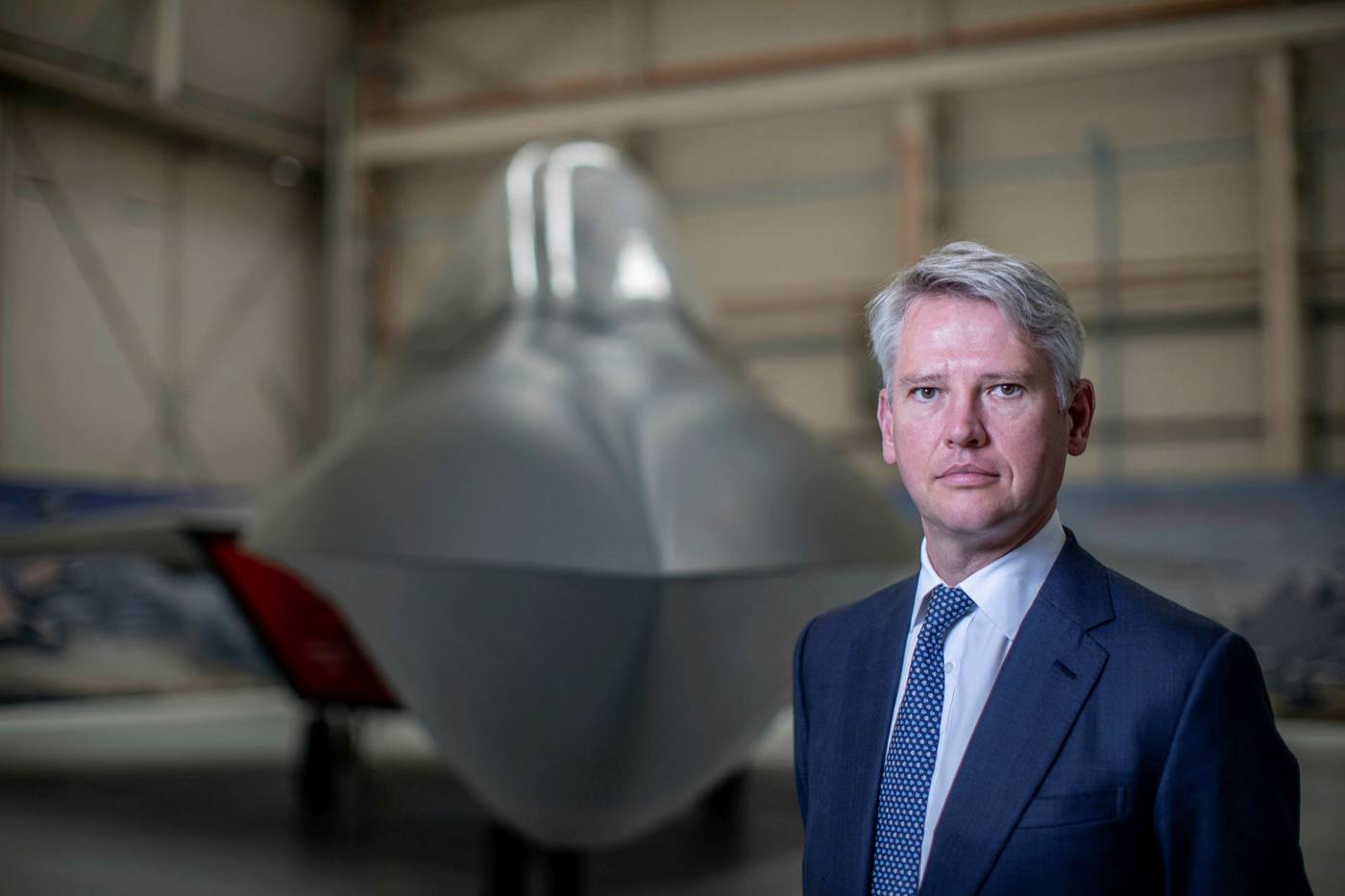

But the war has changed the mood music for some investors — if not all. Sweden’s SEB bank, which before the conflict had put in place a blanket ban on investing in any company deriving more than 5 per cent of its revenue from the “development, production and service of weapons comprising combat equipment, or certain other military equipment”, performed a U-turn in the spring. Six of its funds are now allowed to invest in the defence sector.
但这场战争改变了一些投资者的情绪——如果不是全部的话。瑞典的SEB银行在冲突前曾全面禁止投资于任何超过5%收入来自“开发、生产和服务由战斗设备组成的武器或某些其他军事设备”的公司,该银行在春季进行了转折。它的六个基金现在被允许投资于国防部门。
Debates about a rethink of exclusion criteria for defence companies are also taking place at some of Germany’s state and private banks. LBBW, one of the country’s public sector banks, told the Financial Times that in view of “current developments” it had adjusted its guidelines on arms and weapons transactions.
德国一些国有和私人银行,也在就重新考虑国防企业的排除标准展开辩论。该国公共部门银行之一LBBW向英国《金融时报》表示,鉴于“目前的事态发展”,它已调整了军火和武器交易的指导方针。
The bank may now participate in the “financing and securing of exports of war weapons and armaments”, LBBW said, if Germany’s export control office has approved delivery to the “supplied state and the state is not on the list of excluded arms and war weapons export countries”.
LBBW表示,如果德国出口管制办公室已批准向“被供应国家交付,且该国不在被排除的武器和战争武器出口国名单上”,该银行现在可以进行“战争武器和军备出口的融资和担保”。
BAE’s Woodburn reckons that “from an investor perspective, Europe has moved pretty quickly”. He warns, though, that “one of the more challenging markets is still the UK, where fund mandates haven’t changed”.
BAE的伍德伯恩认为,“从投资者的角度来看,欧洲的发展相当迅速”。不过,他警告称,“英国仍是更具挑战性的市场之一,那里的基金的原则没有改变”。
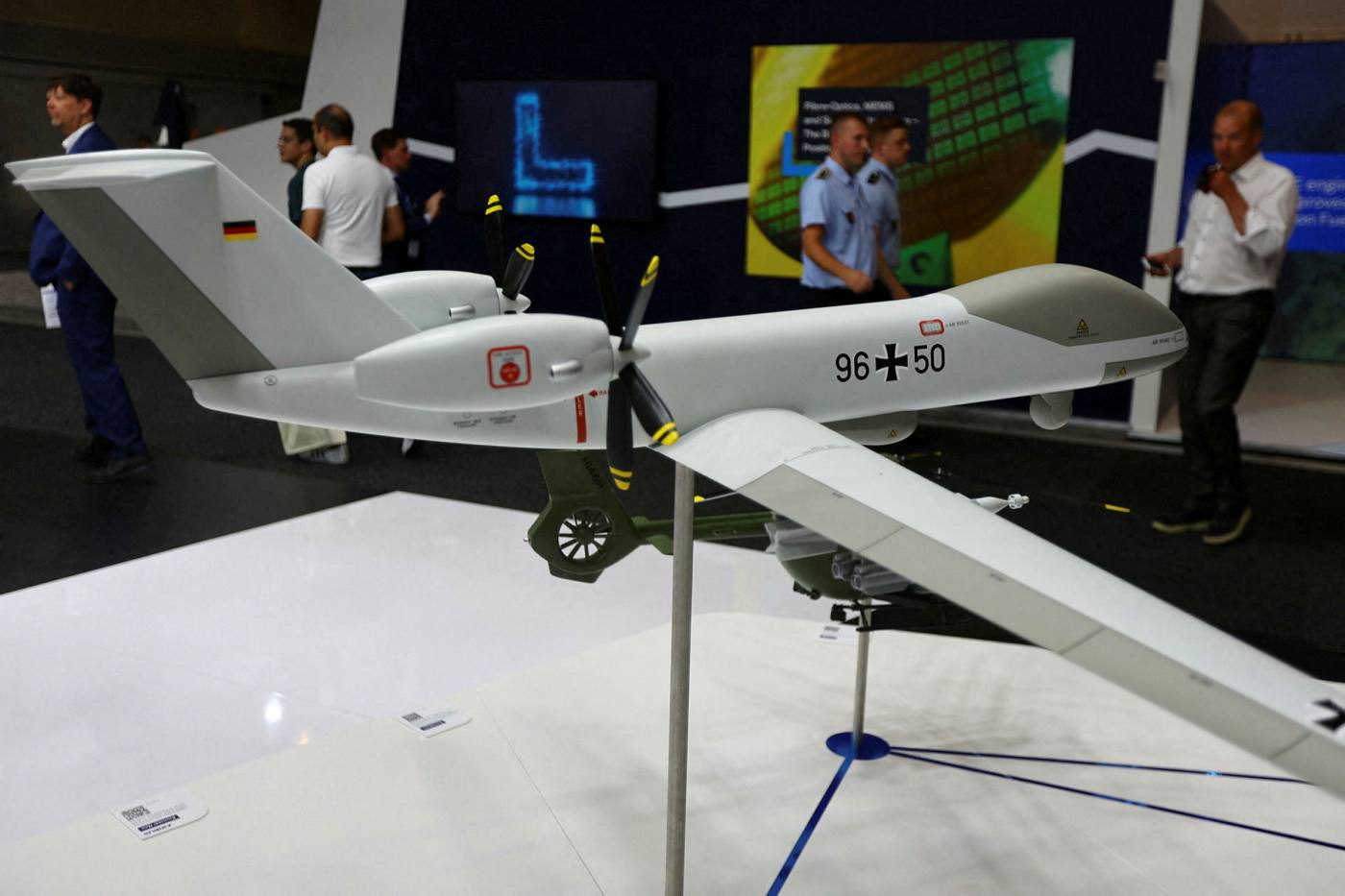

A final challenge, according to Airbus’s Schoellhorn, who is also president of Germany’s aerospace industries association, BDLI, is that of defence exports. “It’s important that Germany seeks a European solution together with its partners, instead of pursuing a purely national approach,” he says.
空客公司的舍尔霍恩同时也是德国航空工业协会BDLI的主席,他认为最后的挑战是国防出口。他表示:“重要的是,德国应该与其伙伴一起寻求一种欧洲解决方案,而不是追求纯粹的国家方案。”
This is as important for running programmes like Eurofighter Typhoon (a multinational fighter jet) as for future large European projects, he adds. A lack of consensus in Europe on arms exports has, in the past, complicated countries’ key trading relationships.
他补充称,这对运营“欧洲战斗机台风”(Eurofighter Typhoon,一种跨国战斗机)等项目和未来欧洲大型项目同样重要。过去,欧洲在武器出口问题上缺乏共识,使各国的关键贸易关系复杂化。
Officials say co-operation between Nato and the EU, two Brussels-based multinational organisations that are headquartered just 5km apart but were far from working in lockstep before the onset of war in Ukraine, is critical for any of the planned initiatives to work.
官员们表示,北约和欧盟之间的合作,对于任何计划中的倡议发挥作用都至关重要。这两个总部位于布鲁塞尔的跨国组织的总部相距仅5公里,但在乌克兰战争爆发前,它们的工作远未步调一致。
Nato officials, who represent almost all the continent’s militaries, say that even ramped-up European defence spending will not achieve its goals if the EU does not force its member states to streamline procurement and swap inefficient national goals for pan-European ones.
代表欧洲大陆几乎所有军队的北约官员表示,如果欧盟不强迫其成员国简化采购流程,并将低效的国家目标换成泛欧洲目标,那么即便是欧洲国防支出的增长也无法实现其目标。
“We can demand higher and higher defence spending all we like,” says one senior Nato official, “but if that lot [the EU leadership] can’t coerce them into spending it properly, it’s not going to make a massive difference.”
一位北约高级官员表示:“我们可以随心所欲地要求越来越高的国防支出,但如果那些人(欧盟领导层)不能迫使他们合理支出,那就不会产生重大影响。”
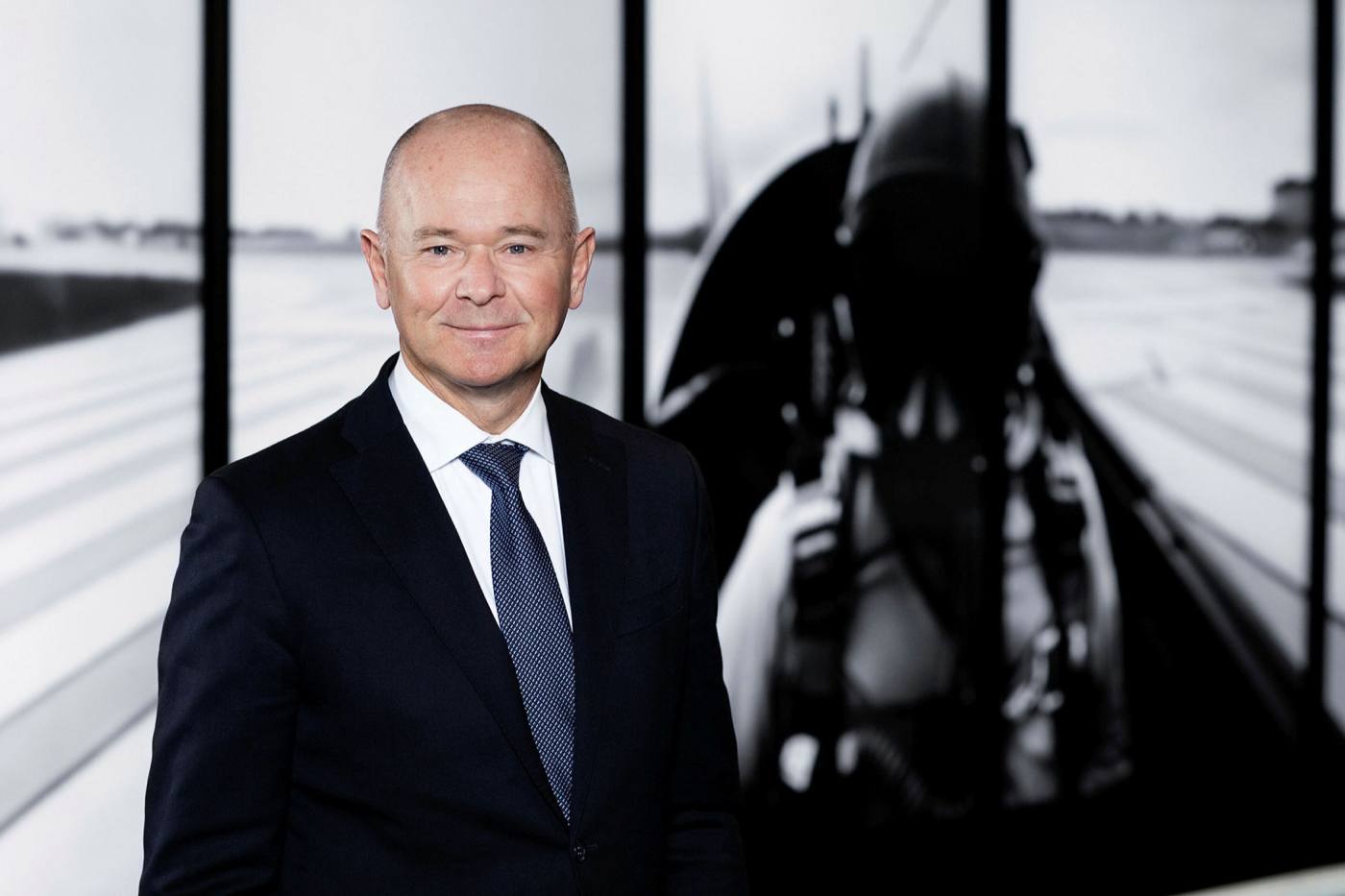

Meanwhile, Europe should be careful to make sure that a greater focus on its own capabilities does not signal to the US that its companies are no longer welcome on this side of the Atlantic, says Saab’s Johansson. “The transatlantic link is extremely important,” he says. To suggest otherwise or to signal that Europe’s borders are closed to outsiders “would not be good for the competitiveness of the industry going forward,” he adds.
与此同时,萨博的约翰逊表示,欧洲应谨慎行事,确保对自身能力的更大关注不会向美国发出这样的信号:美国企业在大西洋这一边不再受欢迎。他说:“跨大西洋连接极其重要。”他补充说,如果提出相反的建议,或者发出欧洲边境对外人关闭的信号,“将不利于该行业未来的竞争力”。
Finland and Sweden’s recent move to join Nato has boosted hopes of more collaboration. If the two Nordic countries become full members, just four EU states — Austria, Cyprus, Ireland and Malta — will remain outside the US-led military alliance.
芬兰和瑞典最近加入北约的举动,增强了双方加强合作的希望。如果这两个北欧国家成为正式成员国,那么只有四个欧盟国家——奥地利、塞浦路斯、爱尔兰和马耳他——将留在美国领导的军事同盟之外。
Josep Borrell, the EU’s foreign, defence and security chief, is clear about the importance of this moment of renewed unity: “It is crucial that member states invest better together to prevent further fragmentation and address existing shortfalls,” he says. “If we want modern and interoperable European armed forces, we need to act now.”
欧盟外交、国防和安全事务负责人约瑟夫•博雷尔(Josep Borrell)清楚地认识到这一重新团结的时刻的重要性:“至关重要的是,成员国要更好地共同投资,以防止进一步分裂,并解决现有的不足,”他表示。“如果我们想要现代化和可互操作的欧洲武装力量,我们需要现在就行动。”